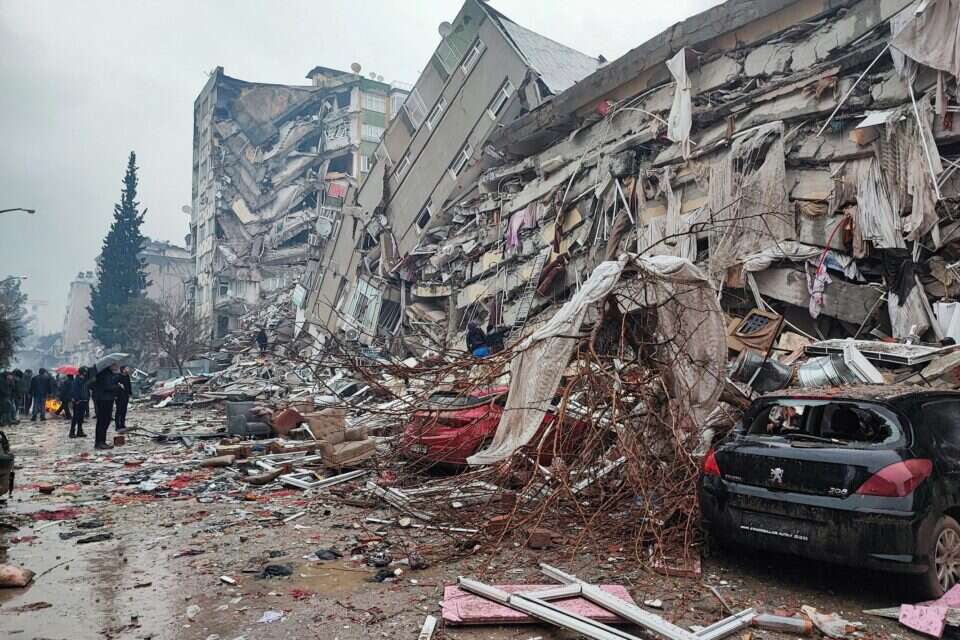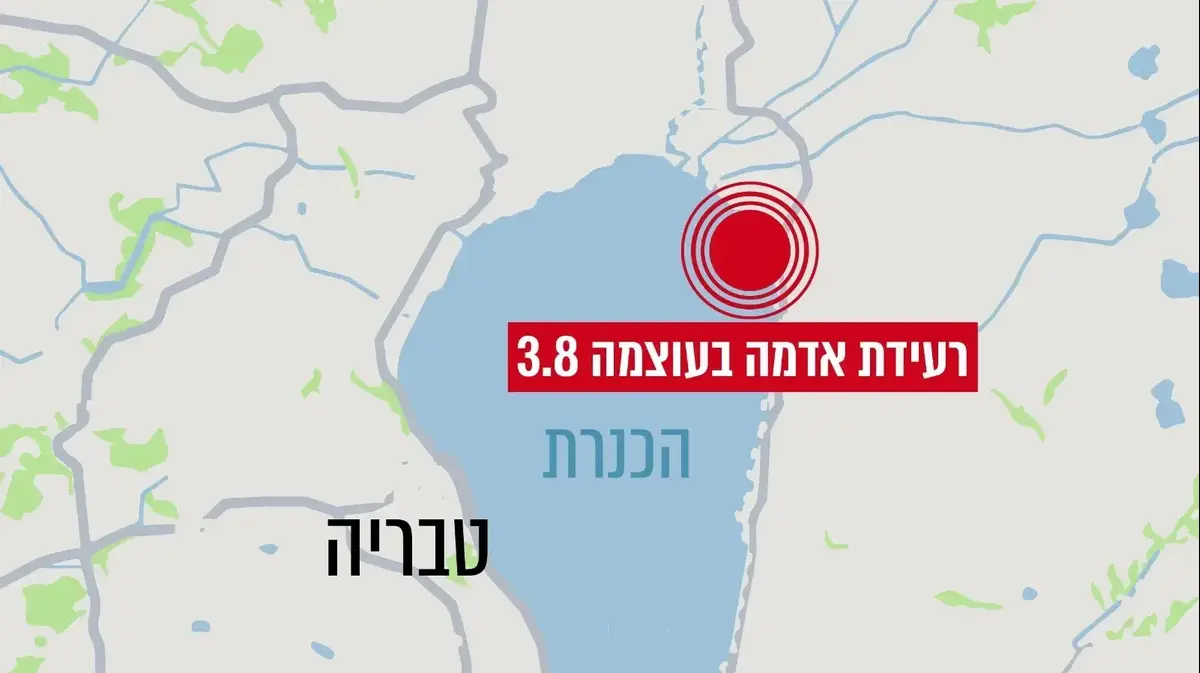The strong earthquakes that struck Turkey and Syria today (Monday), which caused the death of more than 2,300 people and the injury of thousands more, were also felt well in Israel.
It is a stressful event that can cause anxiety in both young and old.
However, children's dealing with these types of cases is more complex, and therefore it is incumbent on the parents to mediate the incident for them in a gentle but clear way.
• How does a child with special needs deal with the death of a parent?
• The critical mistake you make when traveling with the baby in the car
• The heavy price paid by the parents and the baby after the maternity leave
Our tendency as parents is to hide information from our children, thinking that it helps us protect them, not hurt and upset them.
But as soon as information is hidden from them, a vacuum is created in them, and they often complete the missing information themselves from another source of information, for example through friends from kindergarten or school.
Despite this, the children should be exposed to the media as little as possible, especially the young children.
Also, you should avoid showing them harsh scenes, which can be done from the age of 12-13 onwards.
Unprecedented destruction: aerial documentation of the aftermath of the earthquake in Turkey
Children's thinking is catastrophic.
They interpret reality as the worst that can happen, and therefore the information must be conveyed to them in a way adapted to their age, since the discourse to a 5-year-old child will not be similar to the discourse that corresponds to a 10-year-old child, because their worldview and understanding is simply different.
Yes, you should use words and give the event a name, for example, that there was an earthquake.
It is difficult for young children to grasp loss and death, so you can say that something happened and tell about the consequences of the event.
You can also tell how to defend yourself against such an incident, and give the children validity for the feelings they have.
It is important to share our feelings with our children as parents.
You can say that it is okay to be afraid, to leave the conversation very open and allow the child to come and ask us questions, if he wants, and also to share or talk about the issue.
It can be very difficult for children to understand what an earthquake is, so it is recommended not to explain to them in long sentences, but in a concrete way, in short, clear and precise sentences.
For this it is important to understand what stage the child is in, both developmentally and emotionally.
It is important that the conversation takes place in a calm manner and in a calm environment, a place that is considered safe for the child and parent, and not "on the road".
We need to be attentive to the child, give him legitimacy and validity for the feelings and questions that arise in him, and be attentive to our feelings as well.
You should ask the child what will help him deal with the situation, and it is important to maintain a normal routine and patience as much as possible.
If the child is afraid to go to kindergarten or school, it is recommended not to allow him to do so as this gives validity to the fears.
Ask him what he is afraid of, and from that you will find the ways and solutions that will help him deal with the fear.
When necessary, the educational staff at the child's educational institution must be shared so that they will give him their envelope.
The children may discover things that are not suitable for their age (illustration), photo: Getty Images
The size of the event
How do you prepare for an event that may happen and allay concerns?
First of all we need to understand the magnitude of the event ourselves, and then explain it to the children in simple terms.
If we are in an emergency situation and he will know what to do, it will give him confidence.
Our parental response is also important.
Although it is not always controlled, as soon as the parent radiates confidence, the child also experiences it.
Mediation for children with special needs is different and very much depends on the type of disability.
Even a child with a severe mental disability should mediate the situation and explain it to him, and not treat him as if he is not aware of what is happening around him at all.
If it is an earthquake, he also needs to be explained simply what is happening.
In such cases, the child is treated according to his developmental age, and not according to his chronological age.
Therefore, it is our duty not to ignore what they bring up and expect, and to know how to mediate correctly and in an adapted way.
The author is Chen Gordon, a social worker and parent instructor who manages the rehabilitation center in the rehabilitation village "Adi Negev - Nachalat Eran".
Chen Gordon // Photo: Edva Shalhav-Barzilai
were we wrong
We will fix it!
If you found an error in the article, we would appreciate it if you shared it with us














/cloudfront-eu-central-1.images.arcpublishing.com/prisa/IGZ7GOCXZ5GUPAQ2HWGK6Z76BU.jpg)